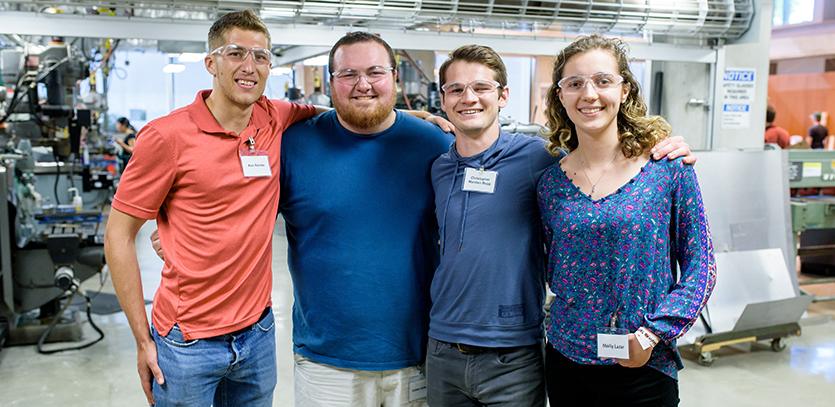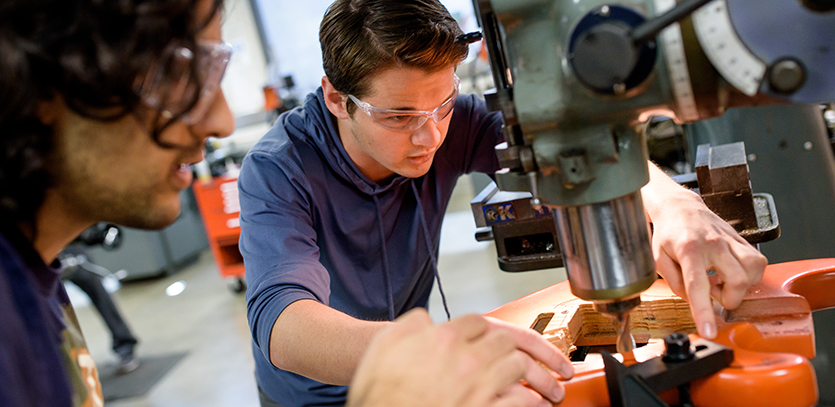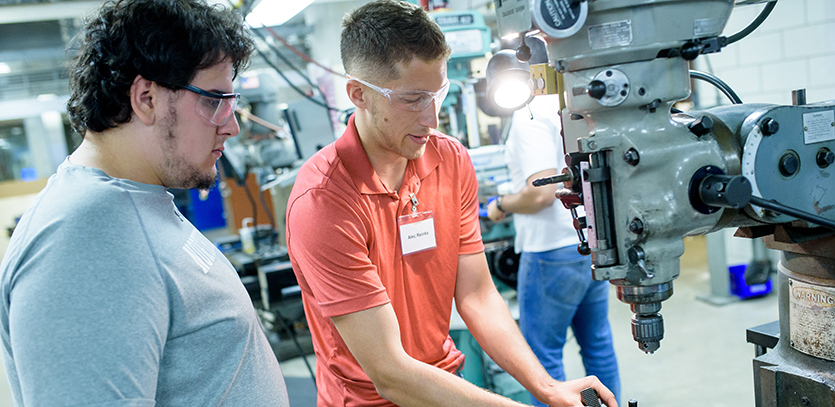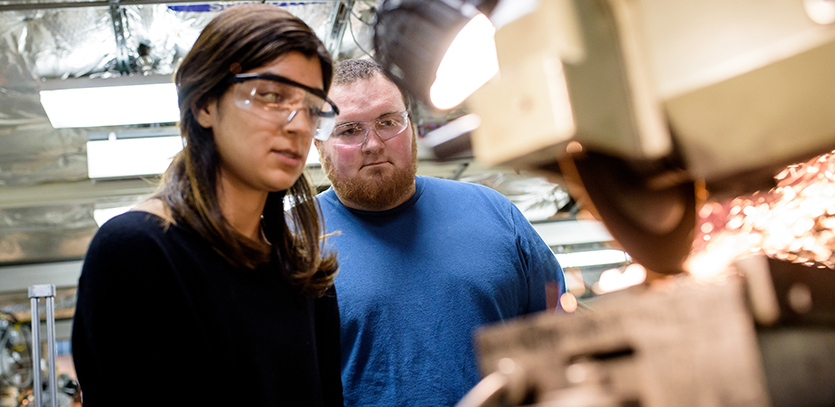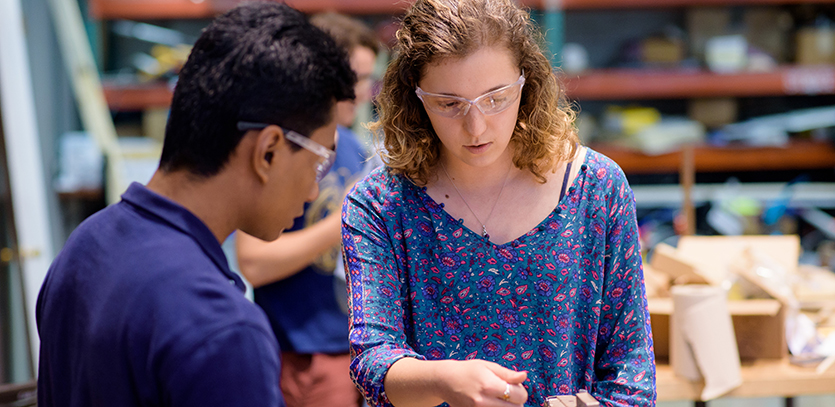Peer Power
Student-trainers help peers learn to safely use Shop equipment
For many new students at Northwestern University, the Segal Prototyping and Fabrication Lab inside the Ford Motor Company Engineering Design Center can be a daunting place.
To a visitor, the cavernous space located directly beyond the entrance doors features piercing noises, intimidating equipment such as milling machines, lathes, and table saws, and a largely foreign assortment of handles and buttons.
But students at "The Shop" have plenty of allies to navigate the unfamiliar terrain, thanks to the Segal Prototyping and Fabrication Lab's six-year-old student-trainer program. Nearly 50 student-trainers currently help their fellow Wildcats on the safe and effective use of shop equipment to drive safety, familiarity, and optimal results.
"We created this program recognizing that students tend to identify better with their peers and realizing that four full-time shop staff members couldn't possibly provide effective training to approximately 240 DTC students per quarter and many others using the shop's equipment," Segal Prototyping and Fabrication Lab operations director Joe Kuechel says.
Peer learning
The student-trainers, who apply for a position in the program, prepare for their supportive role by shadowing the shop's most experienced student-trainers, performing hands-on work with equipment, and directing "mock training" sessions with the shop's senior-level student-trainers.
Once approved as student-trainers, they oversee one-on-one mill and lathe training as well as hand tool training sessions, and regularly assist students on the completion of course projects.
"As the student-trainers learn more shop skills, they pass those skills along to new students while becoming ambassadors for our shop," Kuechel says, adding that the student-trainer program has resulted in a more collaborative environment and greater shop usage.
Last fall, the Segal Design Institute received a $150,000 Susan Harwood Training Grant Program from the U.S. Occupational Safety & Health Administration (OSHA) to create a safety-training curriculum for young shop workers. Shop staff and student-trainers are now developing online training modules on basic machine safety and guarding that will later be used to introduce safety protocols to new students and young workers as well as to refresh the knowledge of existing student-trainers.
"It's another step in our evolution," Kuechel says.
‘A special place'
Prior to her shop training as a freshman, second-year civil engineering student Molly Lazar says the closest she had come to "manufacturing" something was nailing together a wooden mailbox. Working with the shop's student-trainers, however, Lazar was comfortable asking questions and grew so adept at using equipment that she is now one of the shop's student co-managers.
"[The training] helps to take away some of the daunting aspects of the shop by offering students guidance as to what is possible in the shop and instruction as to how machines can and should be operated," Lazar says.
Recent mechanical engineering graduate Alec Reinke, meanwhile, became a shop trainer during the winter quarter of his freshman year and served two years as a student manager. He spent countless hours in the shop over his four years at Northwestern and considers it a special place that taught him valuable skills and lessons.
For instance, Reinke often encountered unfamiliar students facing complex problems. To help them, he had to ask questions, discern solutions, and clearly communicate next steps.
"That's a major asset I can utilize wherever I go," Reinke says.

